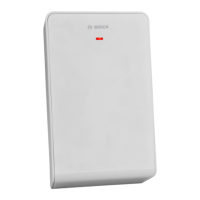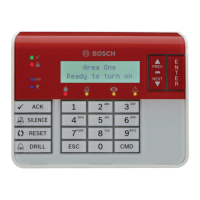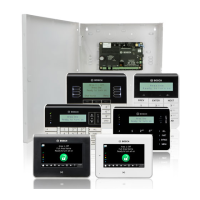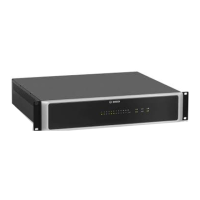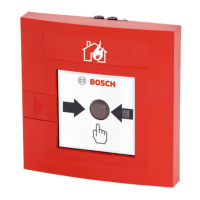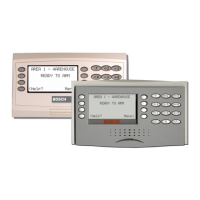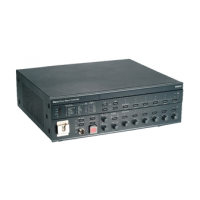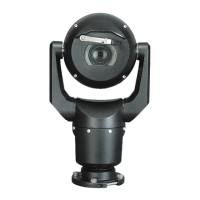98 en | DMS - Data Management System BIS 2.3 - Access Engine
F.01U.028.713 | V 2.3.0.1 | 2009.11 Installation manual Bosch Sicherheitssysteme GmbH
for access control. The abbreviation ACTA stands for Access
Control Transactor.
The transactor receives the update requests from the dialogs
and executes all necessary actions in the database. It then
creates a corresponding logbook message and sends it to the
loggifier.
The transactor offers various services that can be used from a
dialog or from other components connected with the access
control. Data changes generated by the MAC are also processed
via the ACTA.
Transactor for configuration data (CDTA)
This section describes the process that handles all requests for
entries, updates, and deletions in the configuration data tables.
This process is called the transactor for configuration data. The
abbreviation CDTA stands for Configuration Data Transactor.
The transactor receives the requests from the device data
editor and the configuration data utility and executes all
necessary actions in the data of the DMS. It then creates
corresponding logbook entries and sends these to the loggifier.
Calendar transactor (CALTA)
This section describes the calendar transactor that handles all
requests for the insertion, update or deletion of data in the
database tables of the calendar. It is responsible for making
sure that the references for the tables that form the central
calendar are correct. The abbreviation CALTA stands for
Calendar Transactor.
The calendar transactor receives the update requests from the
dialogs and executes all necessary actions in the database.
Each change request for a table first triggers a check. The
requested action is only executed when all checks have
concluded successfully.
Corresponding logbook entries continue to be created for
– Start of work on the request
– Each elementary database action
